Combating modern day slavery is no easy task. The complexity of the needs is staggering and is often complicated by broken law enforcement, corrupt governments, cultural apathy, and lack of resources. Anti-trafficking efforts must always be shaped by each unique context because, quite simply, what works well in one location will not necessarily be effective at all in another.
While strategies are certainly nuanced, we can generalize the categories of responses needed to effectively address human trafficking. A helpful way of thinking about anti-trafficking work is breaking it down into its 4 major categories: advocacy, prevention, intervention, and rehabilitation.
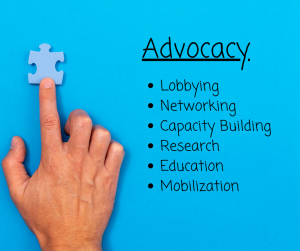 Advocacy is a critical overarching part of anti-trafficking work. The goal of advocacy is to raise awareness of a problem and lobby for better systems to address it, whether at a local, national, or international level. Advocates sometimes speak for the population that they seek to help, but more advanced (and usually better) advocacy works with the target population or is even driven by that population itself. Dark Bali is an example of an advocacy response with the goal to facilitate the growth of a local coalition of anti-trafficking organizations and to raise awareness about human trafficking in Indonesia.
Advocacy is a critical overarching part of anti-trafficking work. The goal of advocacy is to raise awareness of a problem and lobby for better systems to address it, whether at a local, national, or international level. Advocates sometimes speak for the population that they seek to help, but more advanced (and usually better) advocacy works with the target population or is even driven by that population itself. Dark Bali is an example of an advocacy response with the goal to facilitate the growth of a local coalition of anti-trafficking organizations and to raise awareness about human trafficking in Indonesia.
Prevention is a huge need that gets far less attention than it deserves. It is not perceived as exciting as rescue or rehabilitation work. However, helping people avoid victimization in the first place is one of the best ways to care for them. Prevention work is a wide field that encompasses many kinds of development work.
Intervention is the section of anti-trafficking that gets the most attention because it is an intense, short amount of time relative to the other areas. The goal of intervention is simply to remove the victim from danger. Effective intervention absolutely must involve local law enforcement and legal prosecution. Extraction outside of these channels is both illegal and dangerous for the victim and the rescue team.
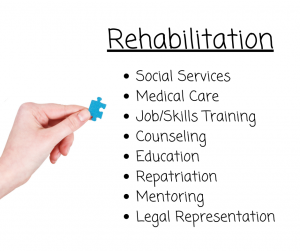 Rehabilitation is an enormous and costly field in anti-trafficking. Survivors come with a range of needs – physical, mental, emotional, social, and legal. The best rehabilitation is done through multiple, specialized caregivers in both private and government sectors collaborating together to provide comprehensive services to each survivor according to his or her specific needs.
Rehabilitation is an enormous and costly field in anti-trafficking. Survivors come with a range of needs – physical, mental, emotional, social, and legal. The best rehabilitation is done through multiple, specialized caregivers in both private and government sectors collaborating together to provide comprehensive services to each survivor according to his or her specific needs.
Thinking of anti-trafficking efforts in terms of the categories within each bigger category is incredibly helpful in identifying what the greatest needs are in a given area. As Dark Bali’s anti-trafficking coalition continues filling in each of these four main categories, our impact becomes stronger and more effective. Thinking strategically keeps us from duplicating services and makes the necessary next steps clearer in our work to end human trafficking throughout Indonesia.

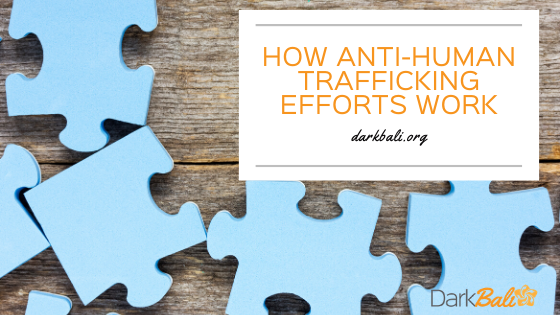
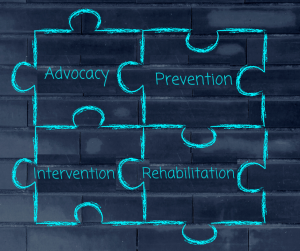
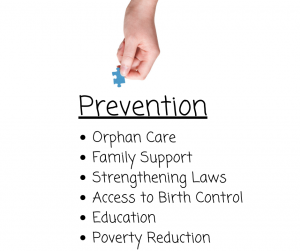
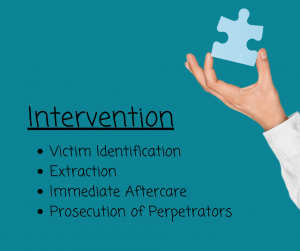





1:55 pm
Comprehensive and thoughtful, perfect strategy to combat the problem in a Holistic way. God bless your organization and efforts.
8:29 am
Thank you, Kevin! We are glad it was helpful to you.